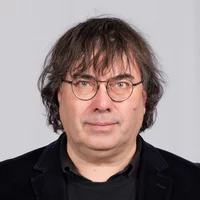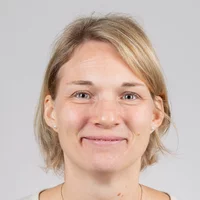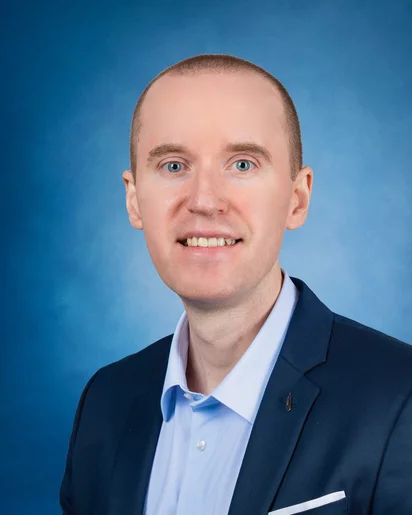CV
Links
Research group
Biography
Dr. Iurii Timrov is a senior research scientist with extensive experience in the field of computational materials science. In 2013 he obtained his PhD in physics with honours from the Laboratoire des Solides Irradiés at École Polytechnique in Palaiseau (France), under the guidance of Dr. Nathalie Vast. His doctoral research focused on the ab initio study of plasmons and electron-phonon coupling in bismuth, with a particular emphasis on developing a new method for electron energy-loss spectroscopy. His work earned him the distinction of receiving his PhD degree with honours (Très honorable). Following his doctoral studies, Dr. Timrov embarked on a series of postdoctoral positions that further solidified his expertise in the field. During 2013-2016 he conducted postdoctoral research at the Condensed Matter Sector of the Scuola Internazionale Superiore di Studi Avanzati in Trieste (SISSA) in Italy, under the guidance of Prof. Stefano Baroni. During this time, he delved into the development and application of first-principles theory and computational methods for studying molecular systems and various materials' properties. Seeking to expand his research horizons, in 2016 Dr. Timrov joined École Polytechnique Fédérale de Lausanne (EPFL) in Switzerland for his second postdoctoral appointment, and in 2021 he became a staff scientist at EPFL. Working under the supervision of Prof. Nicola Marzari, he made important contributions to the development of extended Hubbard functionals within density-functional theory (DFT) and density-functional perturbation theory (DFPT). His research focused on methodological developments, the design of advanced numerical algorithms, and the investigation of materials' properties at the atomistic scale. Starting from 2023 he is working as a tenure track scientist at the Paul Scherrer Institut (PSI) in Switzerland, Dr. Timrov continues to excel in his field. His research activities center around developing, applying, and disseminating novel methods for accurate and reliable modeling of complex materials, with a specific emphasis on transition-metal and rare-earth compounds.
Research interests
- Theoretical and computational condensed matter physics
- First-principles methodological developments and applications
- Density-functional theory (DFT), density-functional perturbation theory (DFPT), time-dependent DFPT (TDDFPT)
- DFT+U and DFT+U+V
- Phonons, plasmons, magnons, electron-phonon coupling, magnon-phonon coupling, spin-orbit coupling
- Strongly correlated materials
- Li-ion and Na-ion batteries
- Magnetism (in particular, altermagnetism)
- Inelastic neutron scattering spectroscopy (INSS)
- X-ray ptotoelectron spectroscopy (XPS)
- X-ray absorption near edge structure spectroscopy (XANES)
- Electron energy loss spectroscopy (EELS)
Open-source software development and applications
Dr. Timrov has contributed to the development of the Quantum ESPRESSO software suite, the most widely used open-source electronic-structure tool for nanoscale materials modeling. His expertise encompasses the implementation of advanced computational codes, including turboEELS for modeling electron energy-loss spectra and turboMagnon for simulating spin-wave spectra. Dr. Timrov's research interests extend to computational spectroscopy of molecular and periodic systems, encompassing studies on optical absorption properties, plasmons, magnons, and relativistic effects in solids. He has made significant contributions to the computational modeling and interpretation of various experimental techniques, including pump-probe terahertz and photoemission experiments, utilizing density-functional theory (DFT) as a powerful tool. Throughout his career, Dr. Timrov has actively collaborated with experimentalists, combining theoretical insights with experimental data to advance our understanding of materials' properties. His contributions include investigations into intercalation voltages and electrochemical properties of cathode materials in Li-ion batteries, lattice vibrational properties, electron-phonon coupling in transition-metal compounds, and the importance of intersite Hubbard interactions in the spectra of perovskites.
Teaching
Passionate about knowledge dissemination, Dr. Timrov has actively contributed to international schools and workshops, sharing his expertise and insights with the scientific community. He has made notable contributions to 12 international schools and co-organized two international Quantum ESPRESSO schools sponsored by Psi-k, CECAM, and NCCR MARVEL. With his expertise and dedication to advancing the field of computational materials science, Dr. Timrov continues to make significant contributions to the development of novel theoretical methods, the implementation of advanced algorithms, and the accurate modeling of complex materials. His research and collaborative efforts foster scientific advancements, promoting the understanding and application of first-principles electronic-structure methods.
See our recent interview about the ASESMA 2025 school in Ghana.


